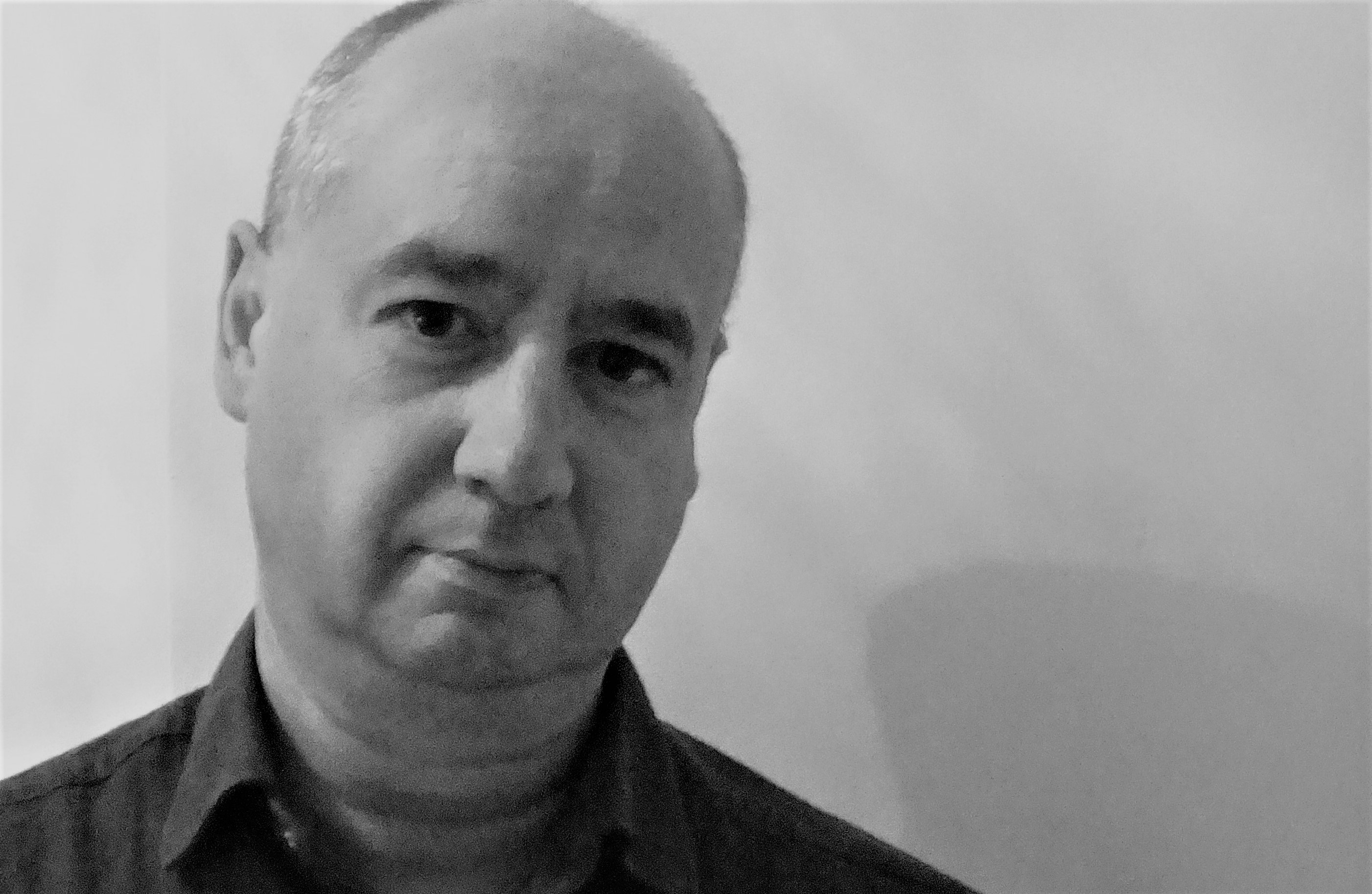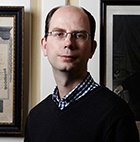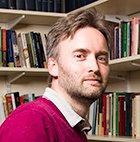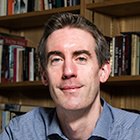
Philip Murphy is Professor of British and Commonwealth History at the University of London.
His first book, Party Politics and Decolonization (1995), was a study of the Conservative party and British withdrawal from Africa. He has subsequently published a biography of the British Colonial Secretary, Alan Lennox-Boyd (1999), the Central Africa volume in the series British Documents on the End of Empire (2005) and a study of the relationship between the British royal family and the Commonwealth, Monarchy and the End of Empire (2013). His latest book, The Empire’s New Clothes: The Myth of the Commonwealth, was published by Hurst in 2018.
He is also joint editor of the Journal of Imperial and Commonwealth History. Alongside British domestic and Imperial History, he also has a long-standing interest in intelligence history, and in international intelligence links.

Duncan Needham is Dean and Senior Tutor of Darwin College, Director of the Centre for Financial History, and Associate Lecturer at the Faculty of History (all at the University of Cambridge).
After completing his first degree at the LSE, Duncan worked at Credit Suisse Financial Products and JP Morgan, where he ran the banks and financials desk. He then ran Cairn Capital's Investment Grade Collateralized Debt Obligation business, before returning to academia in 2008. His research focuses on British and European monetary and financial history, mostly of the twentieth century. He is the author of Monetary Policy from Devaluation to Thatcher, 1967-1982 (Palgrave, 2014), for which he won the Economic History Society’s Thirsk-Feinstein prize, and co-editor of Expansionary Fiscal Contraction: the Thatcher Government’s 1981 Budget in Perspective (Cambridge University Press, 2014).
Duncan is also the convenor of the History & Policy seminar series at HM Treasury.
Laura King is Associate Professor of Modern British History at the University of Leeds. Her research focuses on the social and cultural history of everyday family life, health and medicine, and gender in modern Britain. She is the author of Family Men: Fatherhood and Masculinity in Britain, c.1914-1960 (Oxford University Press, 2015). She has a strong interest in collaboration with partners and audiences beyond campus, and her current project, “Living with Dying: Everyday Cultures of Dying within Family Life in Britain, 1900-50s” features collaboration with artists, museums and genealogists in Leeds, as well as Leeds City Council and charities focusing on bereavement and end of life care.
Alix Green is a Lecturer in History at the University of Essex. She came to academia after a career in policy, strategy and government affairs, and her research is concerned with questions of identity, citizenship and the public-political sphere in modern Britain and Europe. She has a particular interest in the roles and responsibilities of historians in public life and is the author of History, Policy and Public Purpose: Historians and Historical Thinking in Government (Palgrave, 2017). She founded the Public History Seminar at the Institute of Historical Research and serves as a juror for the Public History Prize of the Royal Historical Society.
Chris Williams is a Senior Lecturer in History at the Open University, and a member of the ‘Harm and Evidence Research Collaborative’ (HERC) there: he is also the Arts Media Fellow, responsible for liaising with Arts academics regarding the OU’s open-access broadcast and online projects. His broadcast work for the OU includes originating the Radio 4 series ‘The Things We Forgot To Remember’. His research covers the history of criminal justice in the UK and its empire in the last two centuries: his most recent major publication on this topic was the book Police control systems in Britain, 1775-1975: From parish constable to national computer, (Manchester University Press, Manchester, 2014). Chris is also the convenor of the History & Policy seminar series at the Home Office.

Andrew Thompson is a Senior College Teaching Officer at Queens' College in Cambridge. He is one of the editors of the No. 10 Guest Historians series on the History of Government Blog.
His research concentrates on the history of politics, government and international relations with a particular interest in monarchy in the eighteenth century, reflected in his recent book George II: King and Elector (Yale University Press, 2012). He has worked as a historical consultant for the BBC and is broadly interested in communicating historically-based policy analysis.

Paul Warde is Reader in Environmental History at the University of Cambridge, having previously been Professor of Environmental History at the University of East Anglia. He is Research Director at the Centre for History and Economics, Cambridge. His expertise lies in economic and environmental history, especially resource management, energy history, and the history of environmental thought. Forthcoming books include The Invention of sustainability, and (with Sverker Sörlin and Libby Robin) The environment: a history. Current projects include ‘Who did the dirty work?’, a study of energy embodied in traded goods and related carbon emissions, 1700-1970, with the University of Lund; and research on energy use and sustainability in the Scandinavian Arctic. He has recently been involved in debates on energy transition policies, international development, and integrating scientific and humanities perspectives on environmental change. In 2008 he was a winner of the Phillip Leverhulme Prize.

Adrian Bingham is Professor of Modern British History at the University of Sheffield. He has worked extensively on the national popular press in the decades after 1918, examining the ways in which newspapers both reflected and shaped British society and culture. His books include: Gender, Modernity, and the Popular Press in Inter-War Britain (OUP, 2004); Family Newspapers? Sex, Private Life and the British Popular Press 1918-1978 (OUP, 2009); and, with Professor Martin Conboy, Tabloid Century: The Popular Press in Britain, 1896 to the Present (Peter Lang, 2015). He has worked on the press coverage of child sexual abuse, and most recently has started a project entitled ‘Everyday Politics, Ordinary Lives: Democratic Engagement in Britain, 1918-1992’, supported by an AHRC Leadership Fellowship (2017-18).

Helen McCarthy is Professor of Modern and Contemporary British History at the University of Cambridge. Her research interests include the social and political history of the interwar period, women's work and professional identities, and the social and cultural history of diplomacy. Her first book, The British People and the League of Nations (Manchester University Press, 2011), explored the place of popular internationalism in British society and politics between the wars. Her second book, Women of the World: The Rise of the Female Diplomat (Bloomsbury, 2014), explored the history of women in British diplomatic life since the mid-nineteenth century and was named Best International Affairs Book at the Political Book Awards 2015. Her third book, Double Lives: A History of Working Motherhood (Bloomsbury, 2020) was shortlisted for the Wolfson History Prize and the PEN Hessell-Tiltman Prize, and longlisted for the Historical Writers Association Non-Fiction Crown Award. Helen is a member of the British Academy's Public Policy Committee and has extensive experience of media and policy engagement.

Sally Sheard is the Andrew Geddes and John Rankin Professor of Modern History at the University of Liverpool, with a primary research interest in the interface between expert advisers and policymakers in the UK and in international organisations. She is currently leading a Wellcome Trust funded project; The Governance of Health: Medical, Economic and Managerial Expertise in Britain since 1948. Her latest book is The Passionate Economist: how Brian Abel-Smith shaped global health and social welfare (Policy Press, 2013). She has also written on the history of hospitals, the finance of British medicine, the development of the NHS and medical education. Sally Sheard has extensive experience of using history in public and policy engagement. She has worked with local health authorities and government organisations providing historical context for contemporary health policy issues. She also has written for and presented television and radio programmes, including the 2018 BBC Radio 4 series National Health Stories.
H&P is based at the Institute of Historical Research, Senate House, University of London.
We are the only project in the UK providing access to an international network of more than 500 historians with a broad range of expertise. H&P offers a range of resources for historians, policy makers and journalists.